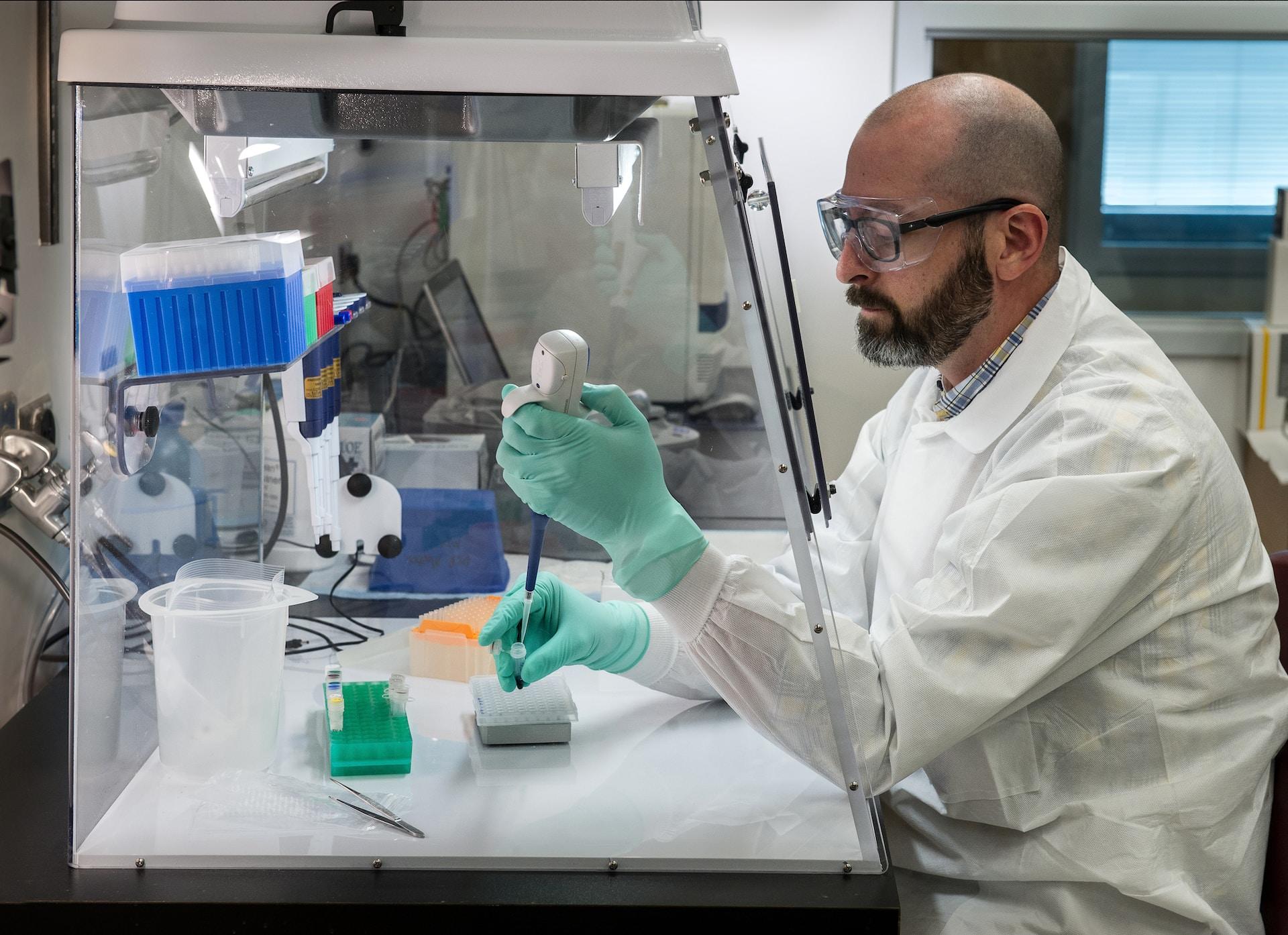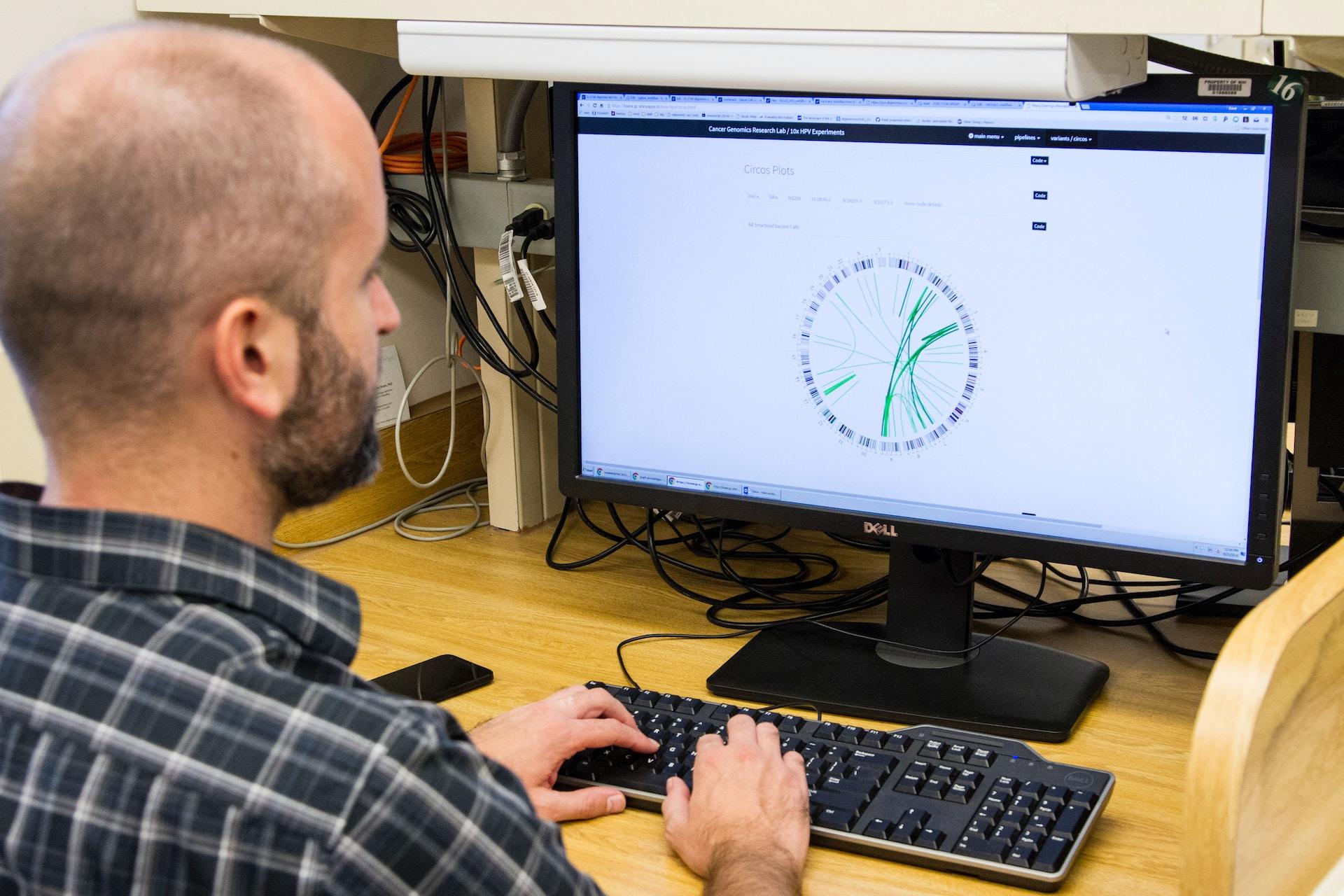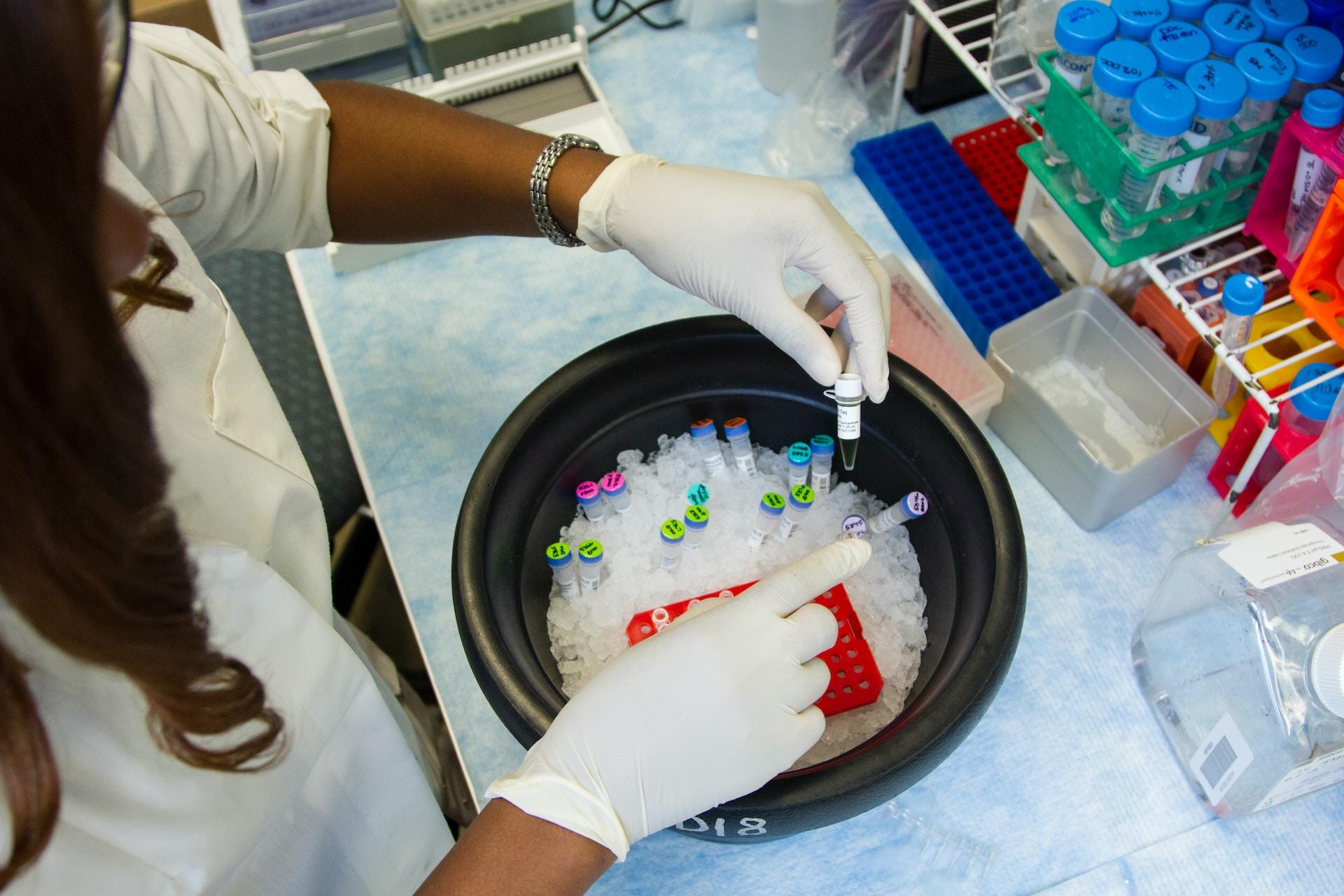You may have heard of biochemists before and know that they permeate many different fields of work - not just the chemistry-adjacent world.
But what do biochemists actually do? What does their average day look like, and what can you expect if you want to pursue a career in biochemistry?
While it’s impossible to sum up each type of biochemist’s day, we can explore a bit into the common experiences had by most biochemists in the field.

What is the Role of a Biochemist?
In this article, we are going to use the term “biochemist” broadly.
Some people are purely biochemists, working in a lab to discover various things and run experiments.
But some biochemists are in positions that are intersections of biochemistry and at least one other discipline, like agriculture, biotechnology, pharmacology, or zoology.
In short, a biochemist is someone who studies a combination of chemistry, physiology, and biology, specifically in organisms. There are many different motives and methods of studying these concepts, as we will find out.
What Do Biochemists Do?
Let’s find out the general tasks that a biochemist might need to do during their career.
Clinical Tasks
In a medical lab for hospitals or clinics, samples from patients are tested for diseases. These biochemists also conduct a lot of research.
Analytical Tasks
Using sophisticated testing equipment, in-depth analyses of biological samples are produced and interpreted by the biochemist. For example, a forensics biochemist may test for substances in a blood sample.
Medical Tasks
Similar to clinical tasks, medical tasks have to do with analyzing bodily samples. However, these tasks can be more on the research side, meaning biochemists may be observing how cells mutate and react to specific medications or treatments.
Nutritional Tasks
A biochemist in the nutrition field will study how the body obtains nutrients as well as how it functions to use those nutrients for various functions.
Comparative Tasks
When comparing, a biochemist will see what similarities and differences are apparent in different samples or subjects. They may compare different animals to one another, or different plants, or perhaps a combination.
Plant Tasks
Studying plants is a huge part of biochemistry. This type of study includes taking samples of plants and observing the functionality on a micro and macro scale.


An Average Day At Work
What a biochemist does relies heavily on which industry they are in.
In the section above, we talked about some different kinds of tasks biochemists may need to complete in their work.
Of course, this was very simplified because biochemistry is an expansive field.
While the different concentrations of biochemists mean their day-to-day work will look different, there is still a lot of overlap in how all biochemists operate!
Hands-On Experiments
A biochemist may either be leading a research team or simply be a member of a team. A team leader will manage the lab, directing everyone in how they should be working, what the aim of the research project is, and determine if any pivots need to be made.
They keep the lab clean and organized to prevent contamination.
Analyses
When conducting research projects, a biochemist may work with some or all of the following equipment:
- Microscopes of all kinds, including electron
- Lasers
- Beakers, graduated cylinders, flasks, etc
- Pipettes
- Petri dishes
- Gel boxes
- Incubators
- Limnological equipment
- Chemical hood
- Blood analyzers
- Tissue cultures
- Specimens
- X-Ray Diffraction
- Autoclaves
- Mass Spectrometers
- Centrifuges
- Water baths
- PCR machines
- Spectrophotometers
- Vortex mixers
Seeking Information
The type of work done and information gathered includes:
- Enzyme analysis
- DNA
- Effects of drugs and food on biologic processes
- Creating cultures
- Filtering samples
- Purifying samples
- Drying samples
- Weighing substances
- Pipetting substances
- Ensuring the conditions of ongoing cultures are maintained
Document Findings
Noting the precise methodology of an ongoing experiment is crucial to document how the final data came to be. The biochemist will need to keep immaculate notes about all of the statistics of their experiments as well as a comprehensive step-by-step account of events.
They will need to prepare technical reports and present research findings to various parties.
Computer Software
One major tool that is now commonly used is 3D modeling software to visualize things like atoms, molecules, and chemical structures.
Biochemists will also use software like:
- Coot
- MacVector
- GraphPad/PRISM-graphing/statistics
- Digital Micrograph
- ImageJ-Viewing
- EMAN2
- CHIMERA
- PYMOL
- Serial Cloner
- Imagegauge
- CellProfiler
- MetaXpress
- Overlord
The direction each biochemist will go in depends on what information they are in the process of finding out, of course.
With all of these processes ongoing at once, with measurements being made, reports being written and presented, and critical thinking going on, it’s no wonder that biochemist is considered a difficult profession!
Even before becoming part of the workforce, biochem students need to learn vast amounts of information by heart so they can be effective. It’s not an easy educational career, but if you’re passionate about science and want to be able to have an interesting, diverse career after graduation, biochem can help you achieve your goal.

What Industries Do Biochemists Work In?
Biochemists are in demand in a wide swath of areas.
Someone with a biochemistry degree can easily find work in a research lab.
If you combine a biochem degree with another, like policy, you create opportunities for unique careers, like an environmental consultant.
Common careers for biochemistry graduates include:
- Agricultural scientist
- Biochemist
- Biochemistry professor
- Biochemical engineer
- Biological or biomedical engineer
- Chartered accountant
- Chemical engineer
- Cosmetics developer
- Federal regulator of biochemical products
- Fermentation scientist
- Food researcher and developer
- Laboratory technician
- Laboratory scientist
- Microbiologist
- Oil and gas scientist
- Patent lawyer
- Petroleum engineer
- Pharmaceutical researcher
- Pharmacologist
- Physician
- Process engineer
- Science writer
- Science teacher
- Toxicologist
- Veterinarian
- Zoologist
The places a biochemist might work range from non-profits, to government, to private companies, to NGOs, and everything in between.
Where to Learn Biochemistry
You can find colleges and universities all over the U.S. that provide biochemistry programs.
Look for bachelor’s, master’s, and doctorate programs that are available both online and in-person!
The only way to become a full-fledged biochemist is to obtain a formal education from an educational institution, so research your prospective schools well and work hard!
Need Some Help?
Biochemistry is do doubt a difficult subject. If you’re struggling to understand or absorb the information from your classes or labs, consider researching “biochemistry tutor near me” and help yourself make your life easier.
Whether you’re still in high school, or in the middle of your doctorate thesis, you can seek the help of a tutor for biochemistry.
Search with Superprof to find an online biochemistry tutor who can help you with your biochemistry lessons from anywhere in the world! Or, seek an in-person tutor who can meet you at the library in between classes.
It’s important to stay on top of your biochemistry education and identify your weak area as they come up. You don’t want to fall behind and struggle even more in the future because you never entirely understood an earlier concept!
Get started with a professional tutor for chemistry classes on Superprof today!
Summarize with AI:
















